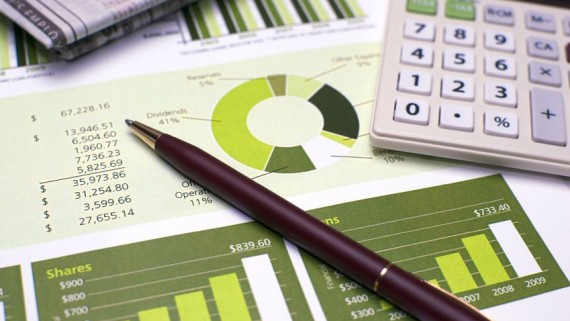5 Most Common Debts That Can Be Discharged in a Bankruptcy
When you file a bankruptcy case, regardless of what chapter you are filing, you must list each of your debts in your bankruptcy case. Some debts may be treated differently depending on the type of debt but all debts must be listed. Some clients become anxious when they are informed they must list their mortgage and car loans in the bankruptcy for fear they will lose their property. However, this is not the case. For example, your car loan is considered a secured debt because the lien holder retains the title to your vehicle as security for the debt. Even though you may intend to retain your vehicle and continue paying the monthly car payments, you must still list the car loan in your bankruptcy filing. Your bankruptcy filing would notify the creditor of your intention to retain the collateral and continue making payments so that there is no confusion as to your intentions with regard to the vehicle.
Individuals file for bankruptcy relief for a variety of reasons. It could be that they lost a job, had a prolonged illness or lost a spouse and are unable to continue to pay their bills. Whatever the reason may be, filing a bankruptcy case provides relief to individuals who are struggling with debt and have nowhere to turn. Filing for bankruptcy relief is often the only alternative remaining after exhausting all avenues to repay the debt. A bankruptcy filing is the legal remedy for the inability to pay one’s debts. There is no shame in filing a bankruptcy case and the court will not judge you or make you explain why you had to file a bankruptcy case. It is a necessary element of our economy. Congress felt strongly enough to enact laws to protect and assist individuals suffering from debt that they cannot pay. Those laws are in place to help you find an affordable solution to your debt problems.
Five common debts discharged in bankruptcy
Many types of debt are discharged in a bankruptcy case. As a debtor, you must list each debt that you owe on the day that your bankruptcy case is filed. It does not matter if you intend to continue paying the debt (i.e. mortgage payments, car loans, etc.); you must still list the creditor in your bankruptcy schedules. All creditors and parties in interest must receive notice that you have filed a bankruptcy case. Your Michigan bankruptcy attorney will help you determine the priority of your debts, explain how various debts are handled and if any of your debts are non-dischargeable.
Most unsecured debts are discharged through the filing of a bankruptcy case. Below are five of the most common types of debts that we see in a large majority of the bankruptcy cases that we file. We very few exceptions, all of these debts would be discharged in bankruptcy.
Credit card debt – Credit card debt is one of the leading reasons that people file for bankruptcy relief. The reason for the credit card debt varies but the one thing that remains the same is that the credit card companies and banks make it almost impossible for consumers to pay off their credit card debt once they fall behind in their payments. The company will charge late fees, over the limit penalties and other charges to increase the balance owed. Because the companies raise the interest rate, the monthly payments are applied to interest with very little, if any, of the payment going toward the principal. Bankruptcy wipes out credit card debt to give debtors a fresh start.
Medical bills – Another leading reason for bankruptcy is unpaid medical bills. Even though many Americans have health insurance, they still face high medical bills that insurance will not cover in regard to a prolonged illness or traumatic accident. For those individuals without health insurance, medical bills are a never-ending nightmare. Bankruptcy discharges medical bills so that the person can truly recover from an illness physically, emotionally and financially.
Personal loans – Personal loans are a huge problem in American. Finance companies prey on individuals who need money to pay their living expenses but have no other means with which to obtain a loan. Finance companies then place liens on the person’s household goods and hold those goods “hostage” if the person fails to make a payment. Typically, the interest on these loans are 200% or higher. By filing a bankruptcy, debts can void the lien on household goods and discharge those debts as general unsecured loans. You get to keep your household goods while getting rid of the debt.
Cash advance loans – Cash advance loans are another reason why many people seek help through the bankruptcy court. These loans carry an enormous interest rate that makes them almost impossible to pay off. The person “refinances” the debt by paying the interest only to keep the company from depositing the check they are holding. Rather than paying toward the balanced owed, the individual is only paying toward the interest. The debt will never be repaid. Bankruptcy will discharge this debt so that the debtor can get out from under these unscrupulous companies.
Foreclosure and repossession deficiencies – If your home is foreclosed or your vehicle is repossessed, the creditor has the right to seek a deficiency judgment for the balance owed after the home or car is sold. In some cases, the creditor may be able to garnish your wages for this debt. However, filing a bankruptcy case will discharge this debt and keep the creditor from garnishing your wages or your bank accounts.
Filing a bankruptcy can provide the relief you need from creditors and debt collectors. Attorney Gene F. Turnwald knows how difficult it is to deal with unpaid bills and the stress that a financial crisis can place on you and your family. Contact our office today for a free bankruptcy consultation to see how filing a bankruptcy case will help you get rid of your debt so that you can begin to rebuild your finances for a stronger, brighter future.









